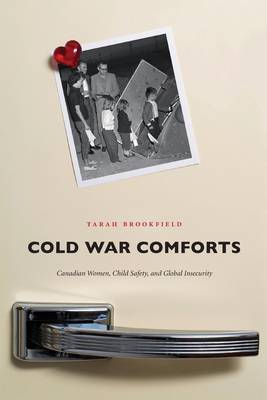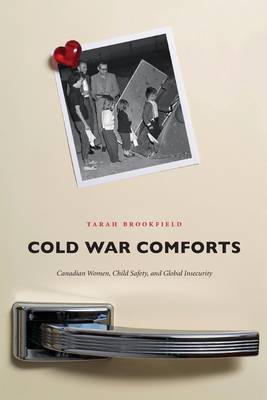
Bedankt voor het vertrouwen het afgelopen jaar! Om jou te bedanken bieden we GRATIS verzending (in België) aan op alles gedurende de hele maand januari.
- Afhalen na 1 uur in een winkel met voorraad
- In januari gratis thuislevering in België
- Ruim aanbod met 7 miljoen producten
Bedankt voor het vertrouwen het afgelopen jaar! Om jou te bedanken bieden we GRATIS verzending (in België) aan op alles gedurende de hele maand januari.
- Afhalen na 1 uur in een winkel met voorraad
- In januari gratis thuislevering in België
- Ruim aanbod met 7 miljoen producten
Zoeken
€ 67,95
+ 135 punten
Omschrijving
Cold War Comforts examines Canadian women's efforts to protect children's health and safety between the dropping of the first atomic bomb in Hiroshima in 1945 and the end of the Vietnam War in 1975. Amid this global insecurity, many women participated in civil defence or joined the disarmament movement as means to protect their families from the consequences of nuclear war. To help children affected by conflicts in Europe and Asia, women also organized foreign relief and international adoptions. In Canada, women pursued different paths to peace and security. From all walks of life, and from all parts of the country, they dedicated themselves to finding ways to survive the hottest periods of the Cold War. What united these women was their shared concern for children's survival amid Cold War fears and dangers. Acting on their identities as Canadian citizens and mothers, they characterized with their activism the genuine interest many women had in protecting children's health and safety. In addition, their activities offered them a legitimate space to operate in the traditionally male realms of defence and diplomacy. Their efforts had a direct impact on the lives of children in Canada and abroad and influenced changes in Canada's education curriculum, immigration laws, welfare practices, defence policy, and international relations. Cold War Comforts offers insight into how women employed maternalism, nationalism, and internationalism in their work, and examines shifting constructions of family and gender in Cold War Canada. It will appeal to scholars of history, child and family studies, and social policy.
Specificaties
Betrokkenen
- Auteur(s):
- Uitgeverij:
Inhoud
- Aantal bladzijden:
- 270
- Taal:
- Engels
- Reeks:
- Reeksnummer:
- nr. 18
Eigenschappen
- Productcode (EAN):
- 9781554586233
- Verschijningsdatum:
- 25/04/2012
- Uitvoering:
- Paperback
- Formaat:
- Trade paperback (VS)
- Afmetingen:
- 150 mm x 226 mm
- Gewicht:
- 439 g

Alleen bij Standaard Boekhandel
+ 135 punten op je klantenkaart van Standaard Boekhandel
Beoordelingen
We publiceren alleen reviews die voldoen aan de voorwaarden voor reviews. Bekijk onze voorwaarden voor reviews.









